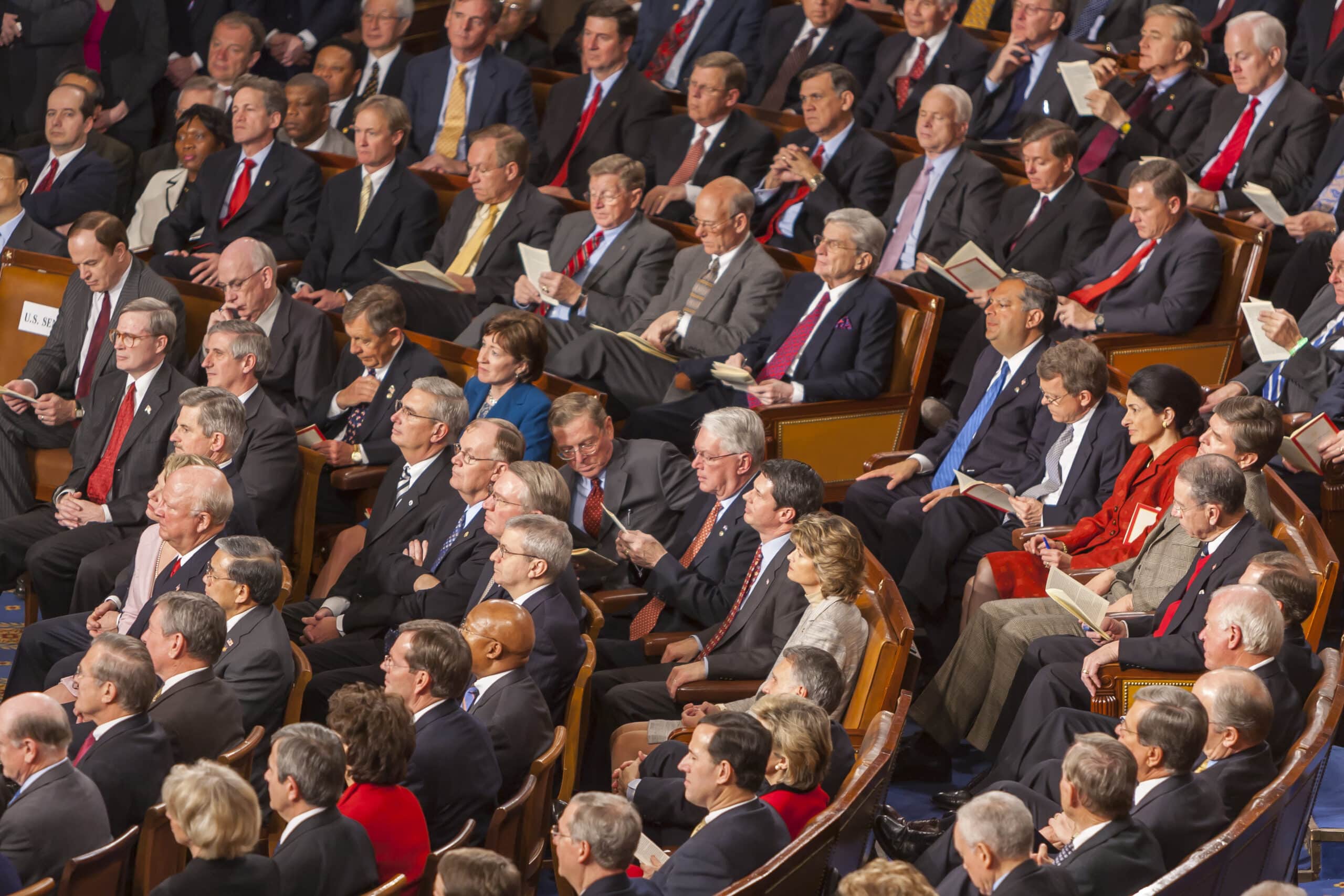Last week, President Biden vetoed the repeal of SAB 121, the SEC’s punitive, anti-crypto accounting guidelines. It was a political miscalculation—there’s no upside to being anti-crypto—and the more than 50 million American crypto users are taking notice. That may be why, Wednesday morning, the House Appropriations Committee is proposing a provision in a budget bill that would prohibit the SEC from implementing or enforcing SAB 121.
Meanwhile, former President Trump is becoming increasingly more vocal of his support for crypto, declaring at an event last month, “…if you are in favor of crypto, you better vote for Trump.” Our industry has been very quickly elevated to a national topic that may influence the outcome of the election.
While it’s heartening to see both sides of the aisle engage, we must resist raucous voices that strain to make this a partisan issue. There’s a bipartisan case for crypto. In fact, crypto, by its nature, isn’t partisan. It’s simply a tool with monumental promise to change our lives in myriad ways. We must keep our focus on crypto’s nonpartisan fundamentals, while pushing for bipartisan cooperation in Washington.
We Already Have Bipartisan Momentum
Last month’s House vote for the Financial Innovation and Technology for the 21st Century Act (FIT21) was a big moment for our industry. With 71 Democrats voting for the bill—a rare bipartisan victory not often seen in Congress—those of us in Washington are energized by early signs of an apparent shift in the political winds, but let’s be clear: our work has just begun.
As an industry, we need to resist the urge to pat ourselves on the back and drop our guard—all eyes are now on the Senate where there will likely be a new approach that requires fresh education, analysis, and advocacy. There’s still a lot of work to do to get workable regulatory clarity.
Getting Market Structure Legislation Right Is Critical
As head of Blockchain Association, the industry’s largest trade association, I’ve taken a deliberate approach to educating policymakers and laying out dedicated plans to secure regulatory clarity for the industry. Our primary focus is now on market structure legislation. FIT21 was crafted out of the FTX crisis when members of Congress were—understandably—focused on policies to prevent another similar collapse and the ensuing harm to customers.
Now, with members on both sides of the aisle engaged on crafting fit-for-purpose legislation, we look forward to working with the Senate on a fresh bill for the next generation of financial and internet technology.
Now is the time to strike. Ahead of the FIT21 vote, the president issued a Statement of Administration Policy—while the SAP opposed FIT21, it stated the “Administration is eager to work with Congress to ensure a comprehensive and balanced regulatory framework for digital assets.” This was the first time that the White House had signaled that Congress—not regulators—should develop policy for the industry, and it was a big step in the right direction.
While a comprehensive market structure bill remains a longshot this Congress, it’s critical that Washington and industry get this legislation right. Any bill must:
- ensure markets are integrated and globally interoperable
- preserve decentralized protocols and protect their developers
- create a clear environment in which developers can create new products and innovation is encouraged
Policymaking is an art—not a science—but I’ve never been more optimistic about workable legislation than I am today.
What the Community Can Do Between Now and Election Day
Recent polling from DCG and the Harris Poll shows that one in five voters in battleground states consider crypto a major issue in the upcoming election, 40% wished political candidates talked more about digital currency, and—perhaps most importantly—48% don’t trust candidates that interfere with crypto. These are striking numbers from an increasingly vocal community of voters.Inside the Beltway more and more companies are opening offices in Washington and hiring dedicated policy teams. Crypto political action committees (PACs) are growing their war chests. And the Blockchain Association is better positioned than ever to effect real change and smart policy solutions.
How can you engage? Join Stand with Crypto—a grassroots advocacy organization that is mobilizing the tens of millions of crypto owners across the United States to contact their representatives and push for smart policy for the industry. You can also join the conversation directly—call, email, post—your representatives are listening.
If you’re a company operating in this space, join us at Blockchain Association and help us craft the policies that will directly impact your business.
Momentum is on our side, but we can’t rest. Let’s seize this moment to ensure the future of our industry remains—and thrives—in the United States.



